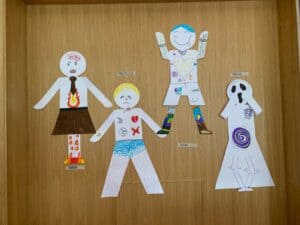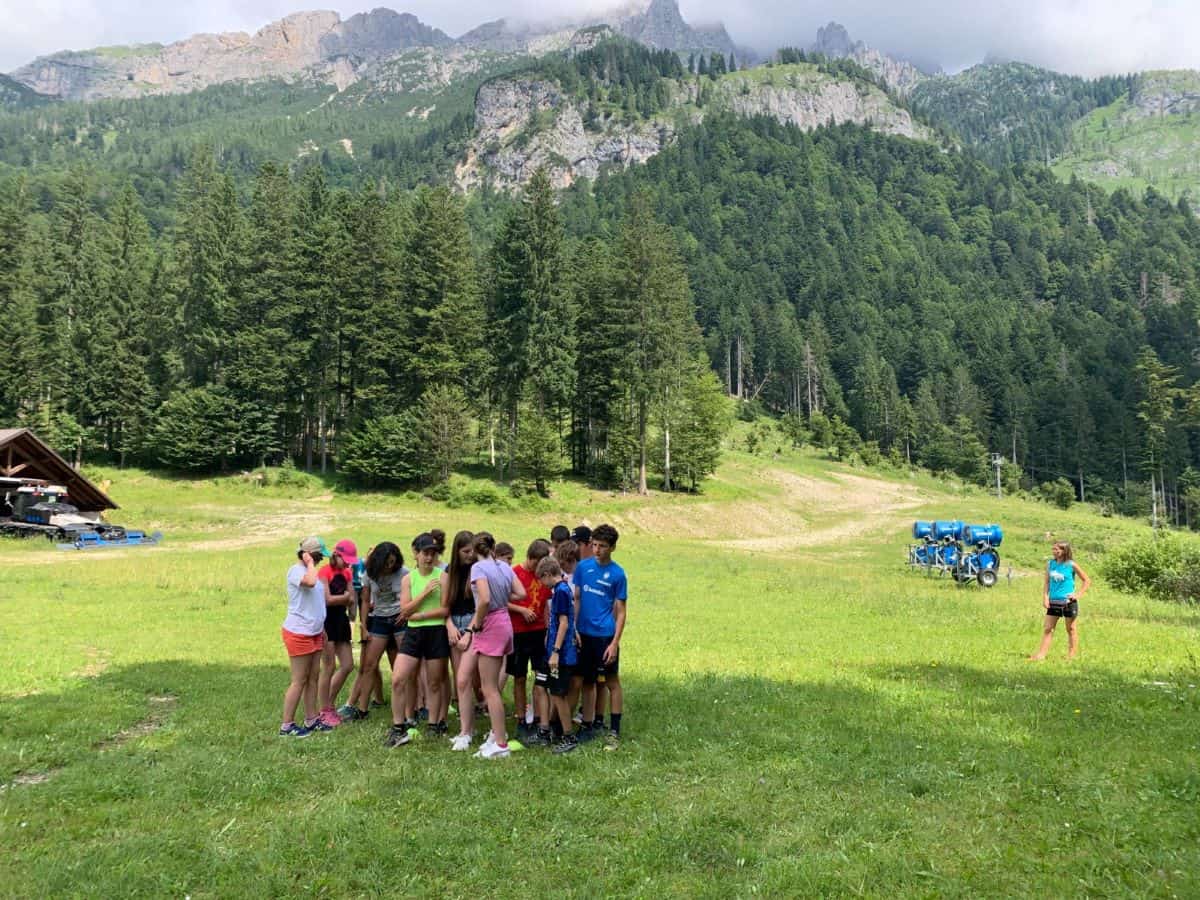In the Alpine region of Val Pesarina, a workshop brought young people together to explore eco-emotions—feelings tied to the natural environment and its changes. Through activities, games, and expert guidance, the event aimed to build emotional resilience and awareness about climate change’s profound impacts.
Climate change is often perceived as catastrophic, sparking emotions such as fear, anxiety, anger, frustration, stress, helplessness, and even depression. These emotions, collectively called eco-emotions, describe the human connection to the environment and its changes. While some eco-emotions may be positive, the negative ones tend to dominate our daily lives. For example, the term eco-anxiety—defined by Treccani’s dictionary as “a deep sense of discomfort and fear linked to the potential disasters caused by global warming”—captures the profound impact climate change can have on mental health.
depression. These emotions, collectively called eco-emotions, describe the human connection to the environment and its changes. While some eco-emotions may be positive, the negative ones tend to dominate our daily lives. For example, the term eco-anxiety—defined by Treccani’s dictionary as “a deep sense of discomfort and fear linked to the potential disasters caused by global warming”—captures the profound impact climate change can have on mental health.
In Italy, awareness of eco-anxiety remains limited. A survey by ENEA (Italy’s National Agency for New Technologies, Energy, and Sustainable Development) highlights not only a lack of knowledge about climate change but also its psychological and health effects. The younger generations, in particular, feel the weight of climate projections, which make their future appear increasingly daunting.
One of the most comprehensive studies on the subject, published in The Lancet Planetary Health (2021), revealed that climate anxiety affects daily activities such as eating, concentration, sleeping, and even playing for about 45% of surveyed participants. This study surveyed 10,000 young people (under 25 years old) from 10 countries, with 75% expressing fear for the future and over 39% stating they would not want to have children.
Although specific data on eco-anxiety in Italy is lacking, several institutions—including the University of Padua, the University of Valle d’Aosta, and the Ecopsychology School of Lecco—are exploring environmental psychology and ecopsychology as emerging disciplines.
Given the relevance of this topic, the BeyondSnow/Oltre la neve project recently organized a day-long workshop in the Friulian Alps, specifically in the pilot area of Val Pesarina. Partnering with the Mountain Community of Carnia and the municipal administration of Prato Carnico, the event aimed to engage young people in exploring these important issues.
As part of the Interreg Alpine Space program, BeyondSnow focuses on increasing the socio-economic resilience of small mountain tourism destinations dependent on snow. By promoting alternative solutions and adaptive strategies, the project seeks to encourage sustainable lifestyles and tourism in Alpine areas. This event provided a valuable opportunity to raise awareness among younger generations, fostering emotional and psychological resilience in the face of climate challenges.
The day began with an introduction to the scientific and historical evolution of global climate and geological changes. The session was led by Dr. Francesca Zarabara, a Ph.D. candidate at the University of Trieste, who studies climate change in the Carnia region.
In the afternoon, activities focused on exploring eco-emotions. Guided by experts, participants engaged in interactive games that visualized possible futures for their valley in a changing climate. A key session, led by psychiatrist and eco-emotions expert Dr. Maria Da Re, introduced participants to the brain’s emotional circuits (e.g., fear, sadness, anger) and how external stimuli trigger physical sensations like fatigue, stomach aches, or crying. Through collaborative exercises, the young attendees learned how reactions to environmental events can vary from person to person.
By the end of the workshop, participants created visual representations of how eco-emotions might manifest in response to the climate crisis. As Dr. Da Re emphasized: “It is increasingly important to provide younger generations—those who will face the long-term effects of climate change—with the emotional and psychological tools needed to navigate this complex and rapidly evolving reality. By doing so, we prepare more aware and resilient individuals who can champion the eco-climatic solutions we urgently need.”
This engaging workshop was made possible through collaboration with the educators of Cooperativa Itaca, who manage the local summer camp under the supervision of the social services of the regional health authority. The municipal administration of Prato Carnico, a proactive supporter of local initiatives, also played a vital role.
The young participants in the BeyondSnow workshop brought enthusiasm and open-mindedness, contributing as much to the event as they gained from it. Discussing sensitive topics like eco-emotions was not easy, but the experience highlighted the importance of addressing these emotions to navigate the transition to an uncertain climate future.
Addressing eco-emotions as a community—and through activities like this workshop—can help individuals accept climate change with psychological and emotional preparation. Embracing these emotions can motivate meaningful action and build a hopeful foundation for the future. After all, the emotional burden of the climate crisis is a collective responsibility, one that requires both immediate and long-term solutions.
Sources
Luciano Caveri, “Reazioni al cambiamento climatico”, 30/11/24
Termine ecoansia, Istituto della Enciclopedia Italiana fondata da Giovanni Treccani



